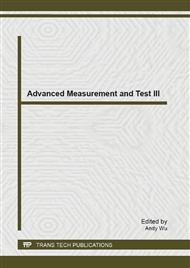p.2463
p.2469
p.2473
p.2479
p.2485
p.2491
p.2497
p.2503
p.2508
Implementation of Advanced Planning and Scheduling System in Manufacturing Industries
Abstract:
Advanced planning and scheduling system's (APS) implementation and operation process for elaborating a production schedule in a production environment similar to what is found in industries. The main characteristics and restrictions of a real production environment were thus considered, such as multi-level structure products, production routes with sequential, parallel and alternative operations, more than one resource per operation and alternative resources. In terms of results, this study provides an overview of the main steps involved in the implementation and operational process of an APS system in an industry, providing an important indicator for choosing and using this sort of system. The expectations of APS systems have been high, both from academia and industry in the subject area of manufacturing planning and control. Relative the massive interest there has not been much written about how APS systems are used in practice and what effects an APS approach really results in.
Info:
Periodical:
Pages:
2485-2490
Citation:
Online since:
July 2013
Authors:
Price:
Сopyright:
© 2013 Trans Tech Publications Ltd. All Rights Reserved
Share:
Citation:


